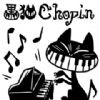|
ESL Forum:
Techniques and methods
in Language Teaching
Games, activities
and teaching ideas
Grammar and
Linguistics
Teaching material
Concerning
worksheets
Concerning
powerpoints
Concerning online
exercises
Make suggestions,
report errors
Ask for help
Message board
|
ESL forum >
Ask for help > Help to translate : epistemic modality types
Help to translate : epistemic modality types
|

piranhac

|
Help to translate : epistemic modality types
|
|
Hi everybody, Epistemic modality serves to reveal how confident writers are about the truth of the idea they convey. There are two types of epistemic modality operators: hedges and boosters. Hedges (i.e. perhaps, I guess) are words employed by the speaker to reduce the degree of or responsibility towards the expression. Boosters (i.e. definitely, I assure that, of course) are elements used by the speaker to emphasize the expression. Does anyone know what we call "Hedges" and "Boosters" in French? Please help me, it �s urgent. |
20 Mar 2016
|
|
|
|

Mariethe House

|
litote? Hyperbole? i am not sure I understand whta you are asking for |
20 Mar 2016
|
|
|

yanogator

|
|
What he �s looking for are French terms for these "operators". I wouldn �t be surprised if French doesn �t have "official" terms for them. We have an expression in English - to hedge a bet - which means to bet on something, but to have an element in the bet that will reduce the amount of the loss, in case the person is wrong. That is where the term "hedges" comes from here. Is there a similar word in French? So what he needs are the French terms for words or phrases (such as "perhaps") that reduce the certainty of a statement, and for words or phrases (such as "of course") that emphasize the speaker �s certainty. Bruce |
20 Mar 2016
|
|
|

maryse pey�

|
|
PERHAPS = peut-�tre, �ventuellement, il se pourrait que...
OF COURSE = bien s�r, certainement, sans aucun doute...
But the translation depends on the context. |
20 Mar 2016
|
|
|

redcamarocruiser

|
|
I asked someone who earned her living as a French interpreter since I don �t know French myself, and she gave it a shot. "It is a difficult question. Hedge is translated "haie" but in this context it could be "une protection" but I am not certain of it. Booster is a "survolteur".
That is all I can tell. " I asked a linguist friend and he found a text which I already PMed, but thought would share for everyone interested: " L’emploi des expressions épistémiques dans les lettres aux actionnaires L’intérêt propre aux expressions épistémiques dans ce genre de texte est surtout lié à leur emploi possible comme moyen d’atténuation (‘hedging’ dans la littérature anglophone). Dans les analyses récentes, le groupe d’expressions réunis par ce terme est assez vaste. Au début, le terme a été employé pour désigner des éléments tel que a kind of (une sorte de), rather (plutôt) par Lakoff (1972), donc des éléments qui servent à rendre l’appartenance d’un élément à une certaine catégorie moins définitive (‘fuzzier’). Depuis les années soixante-dix, le concept de hedging a été élargi pour inclure d’autres éléments réalisant une stratégie communicative qui diminue la responsabilité du locuteur en ce qui concerne la valeur de vérité des propositions (voir Markkanen / Schröder, 1989, 1992). Cela peut être accompli en rendant l’applicabilité d’un terme moins définitive (comme dans le cas de une sorte de, plutôt), mais aussi en signalant une confiance moins que totale dans la vérité de la proposition, et ceci par l’emploi d’un élément modal comme sans doute, probable, devoir (dans son emploi épistémique). La fonction d’atténuation peut aussi être accomplie par des tournures plus longues et plus individuelles qui rendent la proposition vague, comme dans l’exemple suivant : (2) Aujourd’hui, le Groupe a toutes les cartes en main pour répondre aux enjeux du monde moderne." |
21 Mar 2016
|
|
|

piranhac

|
|
Thanks you for your efforts and time. |
31 Mar 2016
|
|
|









